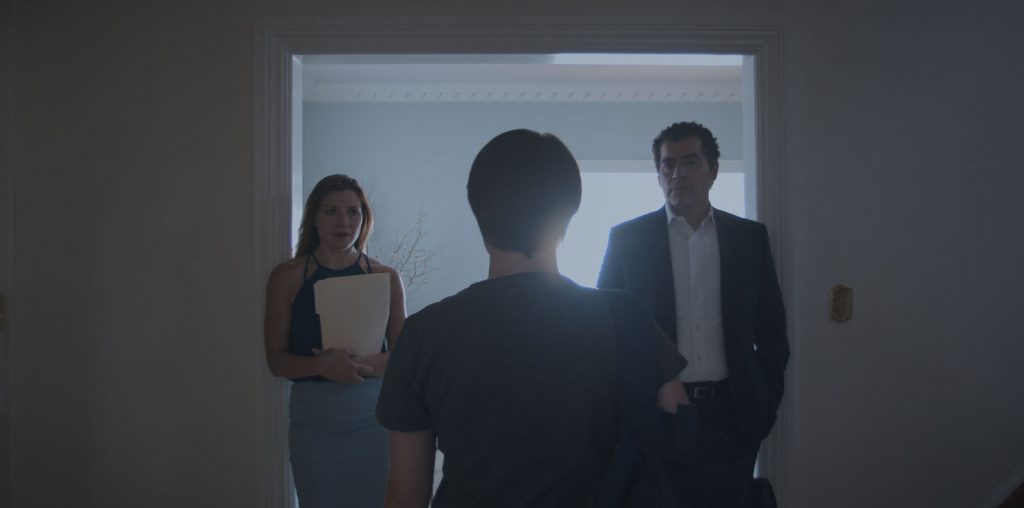
There’s a fantastic little domestic drama hiding somewhere inside “Janie,” the story of a nine-year-old girl who learns that her parents have been hiding a half-brother away from here for the better part of a decade, if only the film weren’t so appallingly nice. Not that it’s fair to blame Christine Shin for wanting to make a nice movie, but in this particular case the story pulls far too many punches, thereby losing much of its dramatic heft.
The greatest flaw in this respect is that Janie herself never seems to suffer overmuch. Of course, it’s intuitively correct that a nine-year-old girl would take poorly to learning that she’s not an only child after all, but beyond that the film squanders almost every opportunity to show us how Janie’s life has been affected. In the pre-title sequence, we see home video footage of her birthday, and while it certainly seems that she is happy to be the center of attention, this sequence is quite short and without dialogue, and we are never again given even the slightest indication that Janie is happy or fulfilled or miserable or any such thing prior to the moment when the plot kicks in, and we’re left with a petulant little girl who isn’t inherently more sympathetic than the silent little boy that she so clearly disdains.
To a certain degree, this does not matter, thanks to Blaine Saunders’s remarkably deep performance of the title character. Rare indeed is the child actor who can convey a full range of emotions using nothing more than slight changes in facial expression, but Saunders is just such a performer, and when “Janie” works at all, it works because she and not the screenplay earns our sympathy, affection and understanding.
Surprisingly, there are two such child actors here, for Tanner Maguire as little brother Ben is nearly as good, without the aid of much dialogue to flesh out his character. It may b e that he is just a little kid being a little kid, but that doesn’t change the degree to which he is responsible for making us believe the melodramatic shifts of the second half in the same way that Saunders drives the more emotional passages earlier.
The film boasts some fairly impressive cinematography by Pyongson Yim, particularly in the opening and closing sequences where she recreates the distinctive color desaturation of old video footage. The only significant visual misstep is Yim’s tendency to over-light the actors’ eyes, leading to a glassy, living-dead quality in their expressions.
Meanwhile, what Shin lacks as a writer, she makes up for as a director; this is a swiftly paced film with some exceptionally beautiful compositions. She has undeniable talent to make a professional looking piece, and if anything the failures of this short suggest that she might be capable of really good things with a feature; if only it had been given more space to breathe, and expand upon its characters interior worlds, “Janie” might have been quite good instead of merely pleasant.
